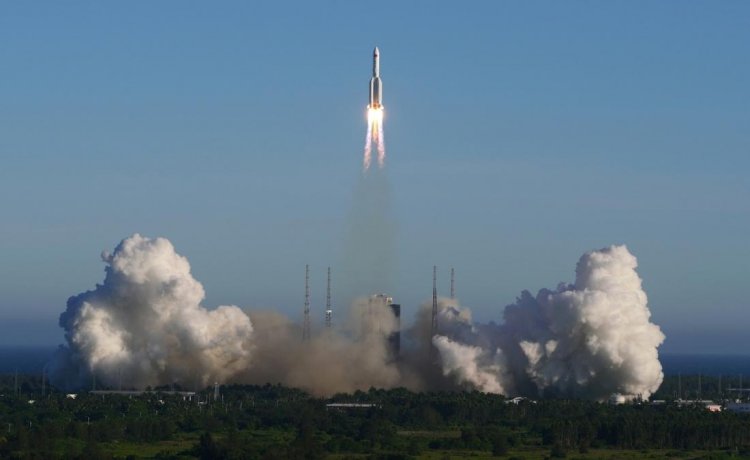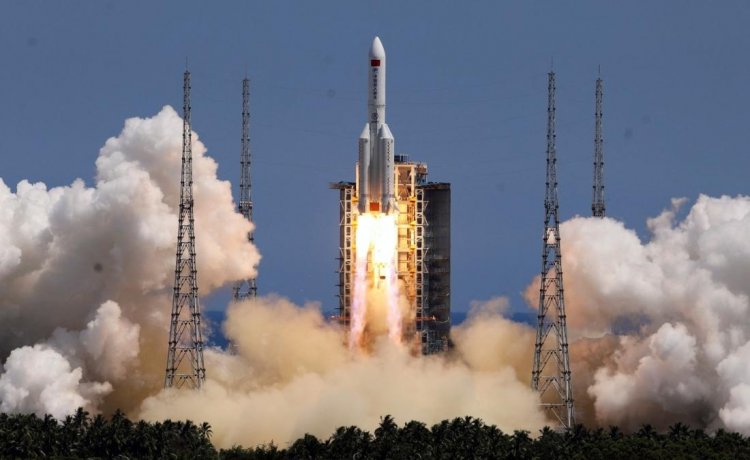Chinese booster rocket is expected to fall on Earth early next week!
Chinese booster rocket is expected to fall on Earth early next week!
Updated on July 28, 2022 10:31 AM by Ava Sara
A new module in the space station!

On Monday, the massive Chinese rockets that delivered a new module to its space station are expected to fall to Earth that is tracking the rocket's trajectory. The 23-ton Long March 5 B rocket carrying the Wentian laboratory module took off from Hainan Island at 2:22 p.m. on July 24. The model was successfully docked with china's orbital outpost.
Uncontrolled descent!

The rocket has gone into an uncontrolled descent toward Earth's atmosphere, and it's unclear where it landed. The uncontrolled descent marks the third time the country has been accused of not correctly handling space debris from its rocket stage.Add Block
It's pretty large!

A professor at the University of British Columbia and author of a recent study on the risk of casualties from space debris, Michael Byers, said it's a 20-tonne metal object that will break up as it enters the atmosphere. Space debris poses extremely minimal risk to humans.
According to research published in Nature Astronomy journal, with the increase in space junk, small changes are becoming more likely in the global south, with rocket bodies being approximately three times more likely to land at the latitudes of Jakarta, Dhaka, and Lagos.
Avoidable risk!
The latitudes of 41 degrees south and 41 degrees north of the equator are the limited geographical range for the rocket's reentry. Since technologies and mission design exist and can provide controlled reentries instead of uncontrolled ones, the risk can be avoidable.
The best practice was conducting a controlled reentry targeting a remote part f ocean where the casualty risks are also high.Add Block
Atmospheric condition!
The exact entry point of the rocket stage into Earth's atmosphere cannot be pointed out until within hours of its reentry because of varying atmospheric conditions. Still, an estimated time for the rocket to reenter the Earth's atmosphere is around August 1.
Space debris weighing more than 2.2 tons is typically brought down to a specific location on its first orbit of Earth. There is no active control system or re-startable engine to boost it back to Earth. Last year China was heavily criticized for handling space debris after launching another module on a similar rocket.
Chinese rocket!
China responded to criticisms by blaming the US for exciting fears over the rocket and accused US scientists and NASA of their conscience and anti-intellectual. A Chinese core rocket weighing 20 tons made of uncontrolled reentry into the Earth's atmosphere passing over Los Angeles and Central Park in New York City.
Related: NASA plans to test a catapult that can launch objects into space at 5,000 mph
Reenter daily!
Space junk such as old satellites reenters the Earth's atmosphere daily where most of it goes unnoticed because it burns up for long before hitting the ground. Large debris such as spacecraft and rocket parts is a small risk to humans and infrastructure on the ground.





